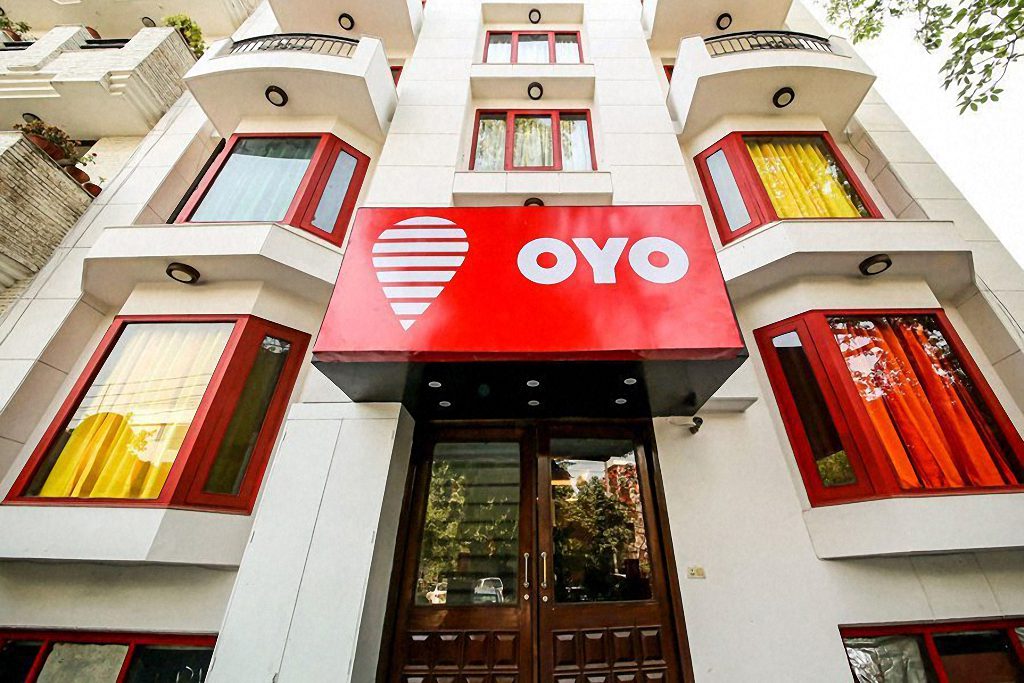India Hotel Brand Oyo Rooms Attracts a $10 Million Strategic Investment From China Lodging Group

Skift Take
China Lodging Group, which owns 3,541 hotels in China, has revealed it made a $10 million strategic investment in Oyo Rooms, a fast-growing marketplace for branded hotels in India.
The move follows last week’s $250 million funding round, led by SoftBank. It is a top-up that came later but part of the same round (valuation) - so total amount is $250 million, plus $10 million.
Taken altogether, Oyo Rooms has raised $446 million, to date.
The investments highlight a funding arms race in a highly competitive space in India that finds aggregators branding and setting standards for previously unbranded and independent budget hotels.
China Lodging Group operates brands that include Joya, Manxin, and Ji. It is among the world's 10 largest hotel groups by market capitalization, which is around $7.87 billion.
The Group's Oyo investment includes a memorandum of understanding that Oyo is calling for a strategic alliance. The two companies did not share details but said it is likely they will help the other with inventory sourcing.
The agreement also mentions a possible collaboration with China Lodging Group's loyalty program. That is intriguing because AccorHotels owns a tenth of HuaZhu Hotels Group, as China Lodging is also know, and since 2016 has enable guests to convert AccorHotels rewards points into HuaZhu rewards, and vice versa.
Delhi-based Oyo is primarily an online marketplace that aggregates small, unbranded hotels and puts the Oyo brand on them if they promise to provide a consistent quality of service.
Not a Global Standard Business Model
A year ago, a critic claimed that Oyo was -- in broad brush -- "a Ponzi scheme." Part of that accusation was that Oyo was using its funding to buy room nights from hotels and then would claim these bookings as proof of growth regardless of whether Oyo was selling them to actual guests. Then the growth" could be used to justify more funding.
That claim was apparently wrong. Buying rooms nights was limited to less than 3 percent of the overall business, the company said in response to the critic. What's more, the practice is also not wholly unusual, as was implied. Other companies, such as HotelTonight, have tried a similar version of it.
Other critics and competitors have speculated that Oyo's gap between costs and revenue is dangerous. In response, the company said that its complex business is often misunderstood because it is "not emulating a global template."
The India Ministry of Corporate Affairs hasn't yet released Oyo's full-year 2016 financial results. Oyo has filed financial results through March 2016.
Based on that data, Oyo lost $77.4 million, or Rs.496 crores, against income of $5 million, or Rs.32 crores, in the 15 months between January 2015 and the end of March 2016.
The losses were approximately 25 times higher than the prior period. There had been a loss of $3.12 million, or Rs.20 crores, in the 15 months between January 2014 and the end of March 2015.
In July 2017, Oyo revealed on its blog selected financial details that are more up-to-date.
According to these "interim unaudited" figures, Oyo's "top-line has more than doubled in the past year."
The company said it lost $50.7 million (Rs.325 crores) in the 15 months between January 2016 and the end of March 2017. That would mean it had brought its losses down by a third from the comparable prior 15-month period.
Oyo did not disclose its revenues for the period. It seems like a reasonable assumption that Oyo still has a large gap between its costs and its revenues in its several lines of business.
On a positive note, the company said that, most recently, its margins per transaction have become greater than 15 percent, on average.
Competitive Space
Oyo faces competition from rival branded-room aggregators like the pioneer Treebo, which received $34 million last week in a funding round led by Chinese venture capitalists, and Accel- and Goldman Sachs-backed FabHotels, which received $25 million earlier this summer.
Adding to the buzz around the sector is word that MakeMyTrip, the largest India-based online travel agency, aims to create its own branded network.
To compete, Oyo is attempting to become a preferred brand. It said it has been making strides in key parts of its business. Customer satisfaction with stays at Oyo properties in the past year has more than doubled. Recently, about 42 percent of consumers said they would be willing to recommend the service to others, according to Oyo's quotes of its net promoter score, a commonly used consumer satisfaction metric.
Softbank's View
Softbank, the Japanese conglomerate, invested in Oyo via its Vision Fund, which has invested billions in various companies, with a mix of wins and losses in India so far.
One reason Softbank has said it likes Oyo more than other hotel networks is that Oyo is attempting to be more than a makeover and marketing agency for property owners. By branching out into other offerings, such as running a property on behalf of an owner and offering a co-working space concept. In this way, Oyo positions itself as an asset management tool for India's business-owning class.
SoftBank is also apparently enamored with the amount of direct business that Oyo Rooms attracts to its website and app, even citing a figure — 98 percent — that doesn’t seem credible. For instance, on a recent random night, Booking.com was listing 99 Oyo properties in Delhi alone. Even if that direct figure is severely inflated, it appears Oyo could be creating a brand that is less dependent than others on expensive distributors.
Clearly, by leading an investment round of $250 million, Softbank's analysts believe in Oyo's vision.
With the $250 million in funding, OYO Rooms founder and CEO Ritesh Agarwal said in an interview that the company wants to up its software engineering game so that it can improve its performance in specific measures, such as reducing the time it takes a consumer to transact a booking on its mobile app.
Agarwal also wants to bring the branded budget hotel model to other markets in Southeast Asia. (Besides India, it is also in Nepal and Malaysia.) He also wants to continue to diversify beyond the mainstay business of branded budget hotels.
As you would expect with any company, not everyone wants to be in on the bet. Anirudh Damani, who had invested in the company around 2012 has cashed out his holdings while wishing the company his best via public statements. Separately, early investor DSG Consumer Partners has partly cashed out.





